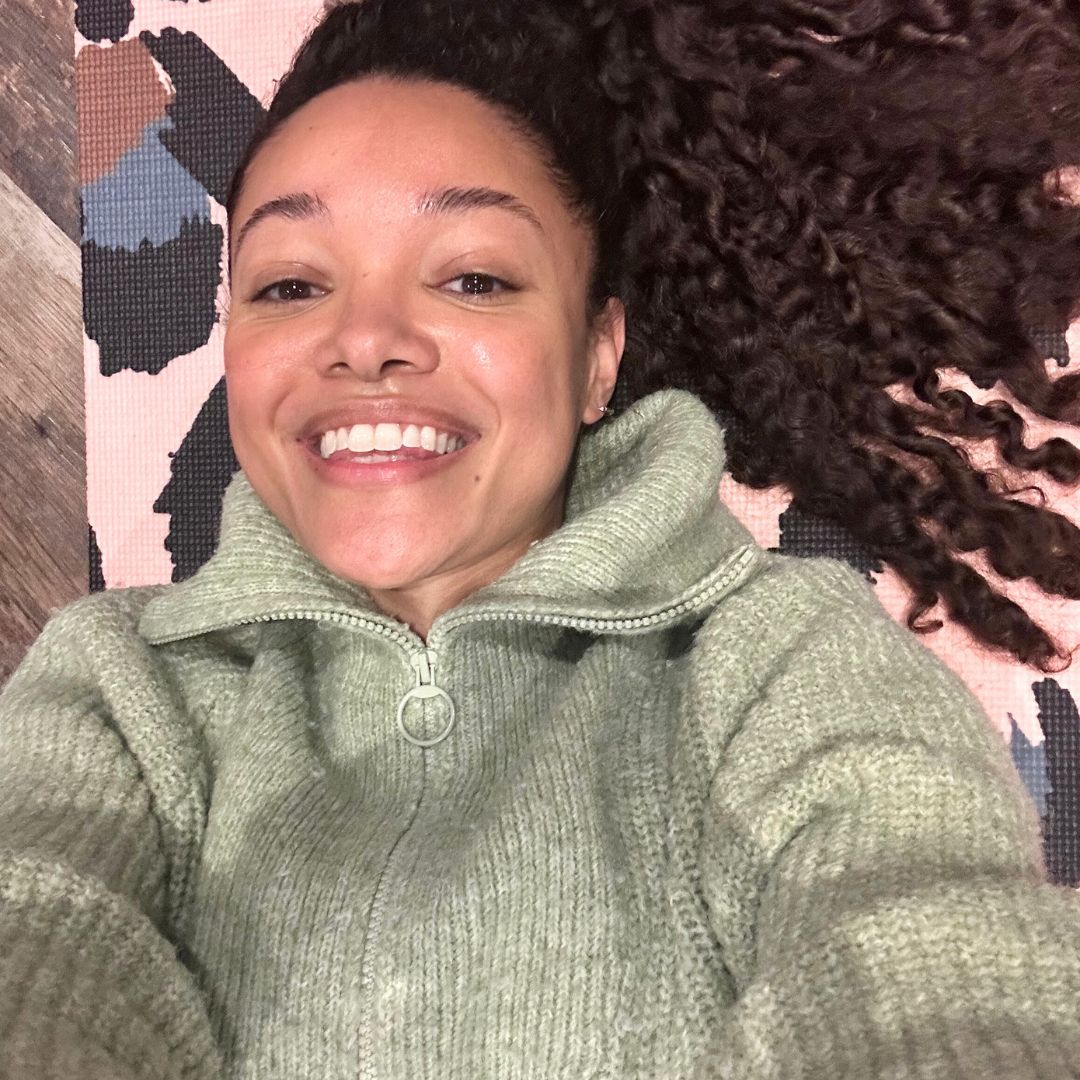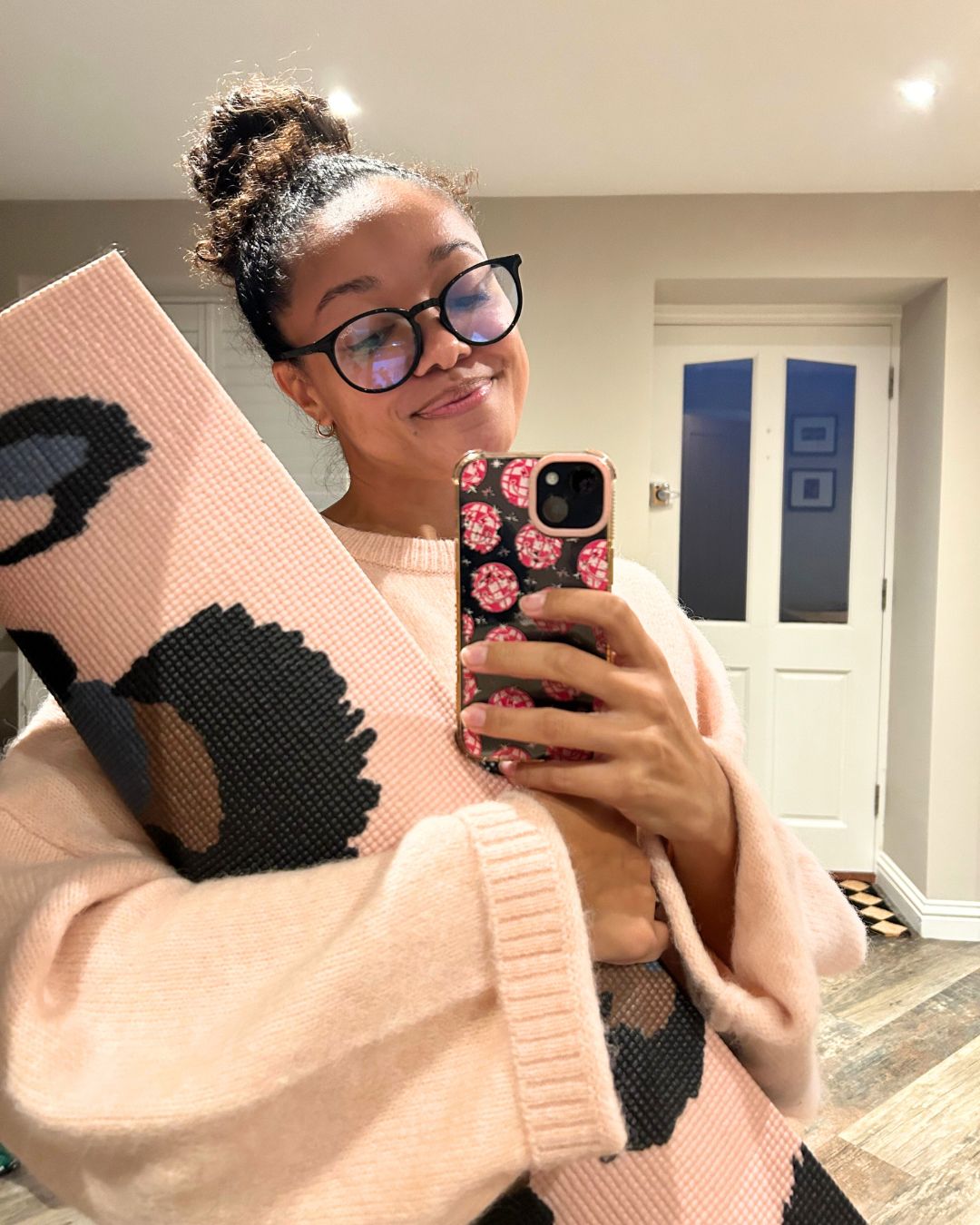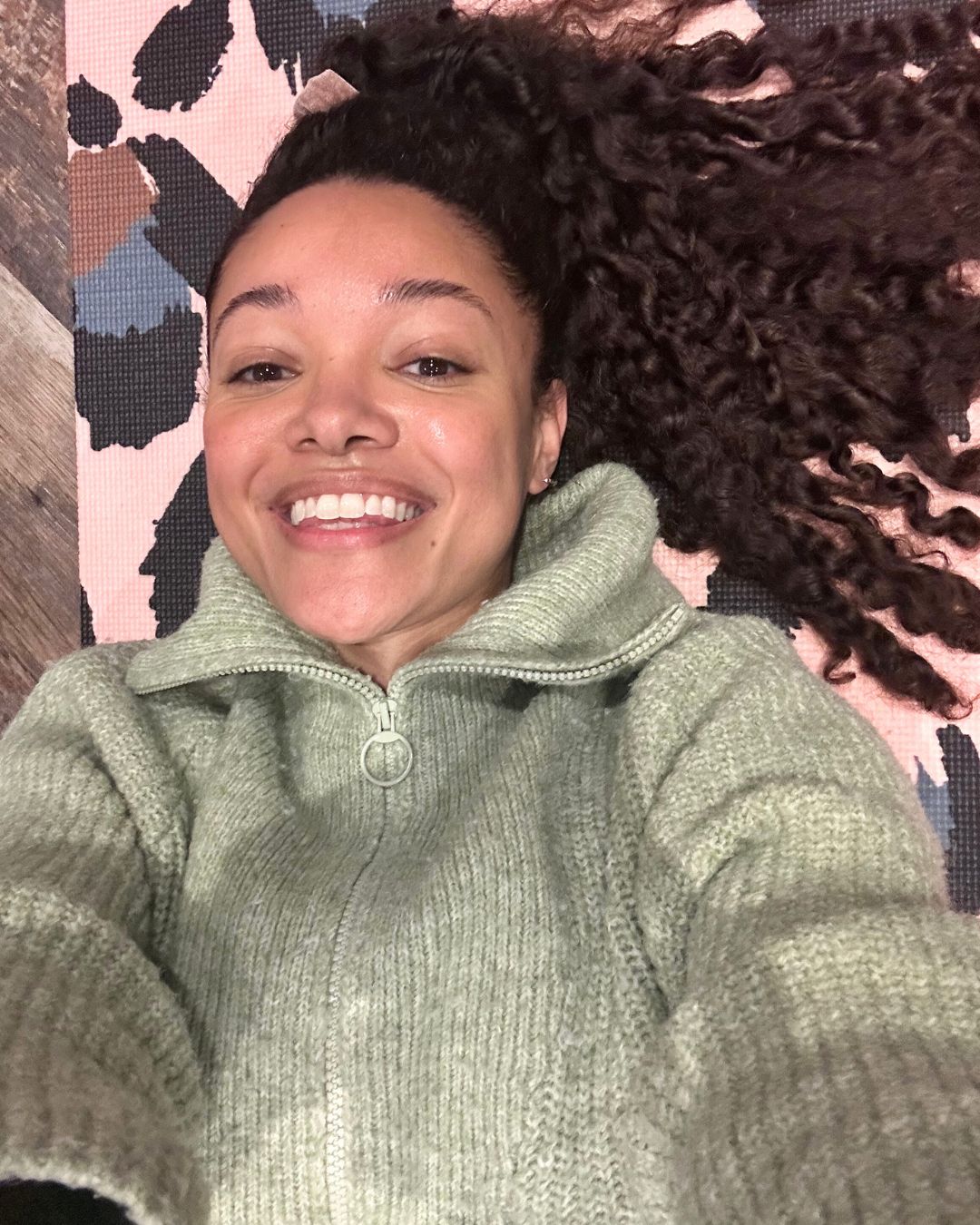
December is December-ing. And by that, I mean my social calendar is full of festive cheer. While I love this time of the year, I can often feel fatigued from all the festivities. But that’s where my five-minute yoga challenge swoops in.
Towards the end of November, my work deadlines started to ramp up as the countdown until the big day got underway. The same can be said for my social life with catchups and celebrations in order after a busy 2024. While I don’t have insomnia, I do sometimes struggle to get to sleep, especially when I've got loads on my plate - which can often leave me feeling a little bit frazzled.
So, in a bid to swerve that festive fatigue, I knew I needed to protect my energy, lower my stress levels and find a few moments of zen before catching some ZZZs. What did I turn to? Yoga.
There are loads of benefits of yoga and a whole wealth of different types of yoga, too - from yoga for flexibility to yoga for energy, to styles spanning Hatha yoga, yin yoga, and Ashtanga yoga, the possibilities are endless.
“Yoga allows you to connect with the breath in such a powerful way,” María Caballero, Yoga Instructor at East of Eden. “As we get along with our busy lives, we forget that the first thing that changes when we are a bit stressed is the breath. Practicing yoga, both movement and non-movement-based practices, will help you keep your breath slow and steady. As we also use the body when moving into the poses, yoga is also a tool to release tension from the body because moving feels good.”
But what started out as a self-care idea to help me manage the busyness of the season, turned into a four-week-long bedtime ritual that has helped me feel more relaxed, rested and ready for the days (and nights) ahead. So, to discover the many ways yoga boosted my zen during this challenge, keep reading.
Want to read more about the globally-practiced workout? Don't miss our expert-led guides to morning yoga, yoga for flexibility and yoga for energy, while you're here. Totally new to downward dog? Our explainer on yoga for beginners will help.
I tried a 5-minute yoga challenge, and I can't believe how much it transformed my overall health
What is this yoga challenge?
While there are quite literally thousands of yoga challenges available online, I knew I wanted to opt for one that was very straightforward (it's a busy time of year, after all, and in my opinion, wellbeing challenges don't need to be anything other).
So, with that in mind, I set myself the challenge of completing at least five minutes of yoga before bed every night for four weeks. That's all there is to it.
What type of yoga is best before sleep?
The question we all want to know. There are many types of yoga. But from looking at the research and speaking to experts, the answer to this question was unanimous: restorative yoga came up every time.
“This is the practice that focuses most on nervous system regulation, and creating an environment using breath and gently supported postures to allow the body to drop into the rest and digest state,” certified yoga instructor, breathwork and meditation coach, Sasha Hanway, a senior coach at the fitness app Ladder explains.
“It’s slower, most of the postures are supported by props that align with your bones," the expert adds. "This allows the soft tissues - muscles, ligaments, tendons - to lightly stretch and open."
In restorative yoga, Hanway says you're looking for a 2 to 4/10 in effort. And you'll hold one posture for anywhere from two to ten minutes. "A practice might only have 6-ten postures," she adds.
What are the benefits of restorative yoga?
One study, published in the Journal of Education and Health Promotion found that Restorative yoga can be “effective” for stress mitigation after respondents said they felt “more relaxed” and that it could help them “think more clearly”.
While researchers tested this theory on medical students, they noted that this type of yoga may be “recommended for wider use”.
Explaining why this might be, Sophia Drozd, yoga teacher and founder of Y4P says: "Yoga is a mindfulness practice, guiding you to bring awareness to your body, breath and mind. The physical aspect of yoga can help to relieve discomfort and tension in the body, whilst the breathwork brings a sense of calm to the body and mind."
As we mentioned, this stimulates the parasympathetic nervous system, reassuring your mind that you are safe and supported activating the 'rest and digest' state. "This in turn reduces your stress levels and promotes the release of our feel-good hormones," Drozd adds.
I took on a four-week yoga challenge—here's how I got on
Weeks one to two
The dulcet tones of Peloton instructor and yogi Chelsea Jackson Roberts fill my ears and my body instantly feels more relaxed than the five minutes that came before. I'm sitting down on my bedroom floor following the first five minutes of Roberts' hour-long Restorative yoga session and I can feel my body coming to a more restful state.
For the first few days of this yoga challenge, Restorative yoga took some getting used to. I wouldn't say I'm new to yoga, but I usually take on more dynamic flows, like Vinyasa, where you might go from a downward dog to a garland pose and a twisted dragon to a twisted low lunge variation, then back again.
However, in most of these five-minute sessions, I barely got through two poses. "Ironically, this type of practice can be way more mentally challenging than a vigorous physical one for some people because it requires stillness," Hanway explains. And it was. I'm not used to lying in a Shavasana for minutes at a time. But I found doing so, helped send a signal to my body it was time to wind down.
Over the course of two weeks, my shoulders were no longer up by my ears and my back didn't feel so tight. I also found that I was able to drift off to sleep more easily. So that's another big tick.

Weeks three to four
By the time week three rolls around I really am on a roll. Instead of doing five minutes, some of my sessions turn into 10 or 20. I also completed some yoga for relaxation and bed yoga sessions, which—you guessed it—can be completed on your mattress, not your mat, so made the journey from wake to sleep easier than before.
In most sessions, I focus on my inhales and exhales and feel the tightness and tension leave my body with every breath. Yoga with Adrienne’s 12-minute routine was also very relaxing and in a notable Restorative yoga session with yogi and breathwork teacher, Kirra Michel, I didn't move from child’s pose for the whole five minutes.
I must admit, it can feel a little bit silly sinking into just one asana for minutes at a time but Michel reminds me time and time again that this is what this practice is all about.
“It’s really about grounding and coming back to yourself,” Kirra says during the session. “We spend so much time moving and putting stress on the body, which is a big part of what we do. But another part is allowing our body to rest and restore and to rejuvenate.” And I wholeheartedly agree!

My verdict
I always knew of the brilliant benefits that come with yoga. For example, I know that morning yoga can be a peaceful way to start your day and wake up your body, and that yoga for strength can help you build a stronger frame. While bed yoga—which I most often tend to perform during the winter months—is the cosiest way to practise this practice.
However, I didn’t think five minutes of this mind-body practice would boost my wellbeing in so many areas. From my sleep and energy levels to quieting my mind and feeling more relaxed. It turns out a little can go a long way. I would often begin my practice feeling a little tense or anxious from rushing from one task to another. But I left my mat (or mattress) feeling sleepy, restful and so much more peaceful in my mind and body than those few moments before.
“Something is always better than nothing," Hanway says. "If I only had five minutes and was looking to regulate my nervous system to wind down, I would find a comfortable supported seat and work through a short breathwork practice.” As the expert points out, this, technically, is yoga. “It’s pranayama,” Hanway adds. “The 4th limb of the practice.” So who knows, maybe throughout January five minutes of breathwork is my next challenge…
Shop MC UK's restorative yoga essentials
This beautifully 4mm-cushioned yoga mat is on the top of my wishlist this year. Super grippy, coming with an anti-sweat stain surface and listed as one of the best yoga mats, this is just the thing for Restorative yoga as you’ll be spending a lot of time sinking into it.
I spotted yoga instructors using yoga blocks and yoga bolsters in pretty much Restorative yoga practice. And it's for good reason. They can make your asanas more comfortable. Or help you bring your head closer to the ground.
We’re often told about the many benefits both yoga and journaling can bring. So why not bring the two together? Kitted out with daily intentions, an energy box to fill in and a sleep section, this aesthetically pleasing journal has to be one of the best wellness planners on the market right now.
Is 20 minutes of yoga enough?
If you’re time-pressed, a consistent 20-minute yoga practice can be enough time to feel the mind and body benefits it brings. According to researchers in an article published in the Human Factors journal, practising ten minutes of yoga for a month could reduce mood disturbance along with musculoskeletal discomfort.
That said, according to the NHS’ Physical Activity Guidelines, we should be “spreading exercise evenly over 4 to 5 days a week, or every day," and aiming for a mix of both cardio and strength training.
Which is why certified yoga instructor, breathwork and meditation coach, Sasha Hanway—a senior coach at the fitness app Ladder—recommends mixing things up. “I’m such a hybrid advocate,” Hanway says. Explaining why, the coach says: “We need strength work for muscular integrity and growth, yoga for mobility, flexibility and isometric strength and deep core work to keep our spines healthy and functional for life. If I could program everyone's ideal workout split, it would combine traditional strength training with progressive overload, deep core work and yoga.”







